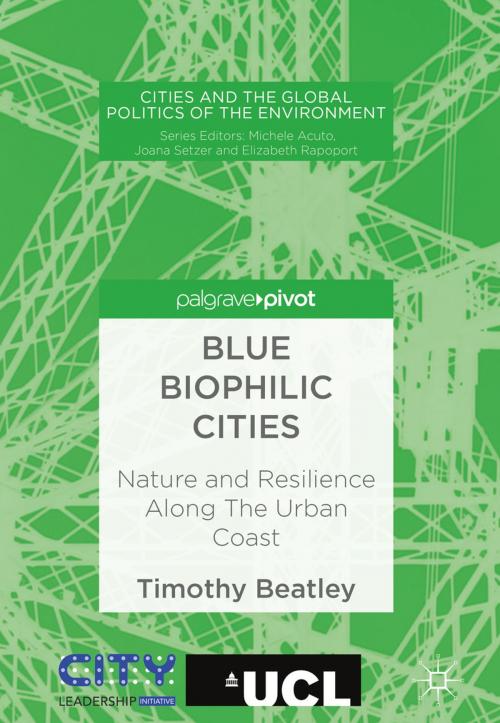Blue Biophilic Cities
Nature and Resilience Along The Urban Coast
Nonfiction, Science & Nature, Science, Earth Sciences, Geology, Geography, Social & Cultural Studies, Social Science| Author: | Timothy Beatley | ISBN: | 9783319679556 |
| Publisher: | Springer International Publishing | Publication: | November 30, 2017 |
| Imprint: | Palgrave Macmillan | Language: | English |
| Author: | Timothy Beatley |
| ISBN: | 9783319679556 |
| Publisher: | Springer International Publishing |
| Publication: | November 30, 2017 |
| Imprint: | Palgrave Macmillan |
| Language: | English |
There is a growing recognition of the contact we need with nature to be happy, healthy and to lead meaningful lives. We need that nature daily, if not hourly, and so it must be nearby to where we live and work. This is central to the concept of ‘biophilic cities’ which is emerging as a global movement and guiding framework for city design and planning. Blue Biophilic Cities is about the promise of this movement and a kind of biophilic urbanism that is possible for cities perched on the edge of harbours and seas.
In blue biophilic cities*,* much of the
nearby nature is to be found in the marine realm. This book explores the efforts underway in a number of cities to foster new marine connections through a variety of innovative programs and initiatives. It also discusses a number of design ideas, from dynamic shoreline edges and floodable parks to living breakwaters, in order to emphasise the possibility of designing for resilience while also supporting marine biodiversity and strengthening biophilic connections to the marine world.
There is a growing recognition of the contact we need with nature to be happy, healthy and to lead meaningful lives. We need that nature daily, if not hourly, and so it must be nearby to where we live and work. This is central to the concept of ‘biophilic cities’ which is emerging as a global movement and guiding framework for city design and planning. Blue Biophilic Cities is about the promise of this movement and a kind of biophilic urbanism that is possible for cities perched on the edge of harbours and seas.
In blue biophilic cities*,* much of the
nearby nature is to be found in the marine realm. This book explores the efforts underway in a number of cities to foster new marine connections through a variety of innovative programs and initiatives. It also discusses a number of design ideas, from dynamic shoreline edges and floodable parks to living breakwaters, in order to emphasise the possibility of designing for resilience while also supporting marine biodiversity and strengthening biophilic connections to the marine world.















